Most Americans, Jewish or not, likely don’t associate Jewish cuisine with Italy. This is the land of pasta, pesto, sauce, and cheese. The image that comes to mind is the polar opposite of the Ashkenazi Jewish fare that Americans generally think of when it comes to Jewish food.
Of course, the diverse tapestry that is Jewish food stretches well beyond the borders of Eastern Europe and the select Israeli dishes that have catapulted to the forefront of food Instagram, like shakshuka and sabich. More American Ashkenazi Jews are becoming familiar with the wonderful world of Sephardic and Mizrahi cuisine. But Italian Jewish food is arguably a universe unto itself with its unique history largely detached from Ashkenazim, Sephardim, and Mizrahim. And considering how regional Italian cuisine is, we can find specific Jewish touches that have left their mark across the centuries.
This is especially true in Sicily, the southern Italian island once home to approximately 30,000 Jews prior to the Spanish Inquisition in 1492. Perhaps the most quintessentially Jewish dish that lives on in Sicilian homes and restaurants today is a sweet and sour veggie dish called caponata, sometimes referred to as “caponata alla giudia” on menus––a dead giveaway of the dish’s origins.
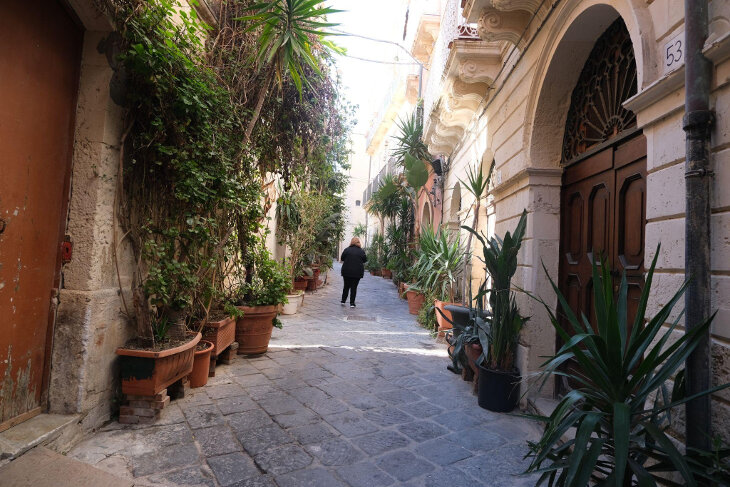 Plant Street in the old Jewish neighborhood.
Plant Street in the old Jewish neighborhood.
A hasty history lesson
First, a hasty history lesson. Sicily is Italian these days, but it’s been conquered by just about every empire under the sun. There were the Phoenicians, the Greeks, Germanic tribes, the Byzantines, the Arabs, the Normans, and finally Ferdinand II and Isabel of Spain––the Catholic monarchs responsible for the Inquisition in 1492 that demanded Jews leave the Spanish realm (which included Sicily at this point) within three months on pain of death. (The original document announcing the expulsion sits behind glass casing at the city archives of Palermo.) It wasn't until Italian unification in 1860 that Sicily finally (through force) became part of what we now know as Italy.
Very few Jews remain on the island today. In Syracuse, a local guide tells a story of the last rabbi who passed aways a few years earlier. Most of the Jewish history on the island is just that––history. In Syracuse, you can find the oldest mikvah in Europe, uncovered by pure happenstance underneath a hotel. Within the old Jewish neighborhood of Palermo, there are signs that read “mesquita” in Italian, Arabic, and Hebrew. “Mesquita” means mosque.
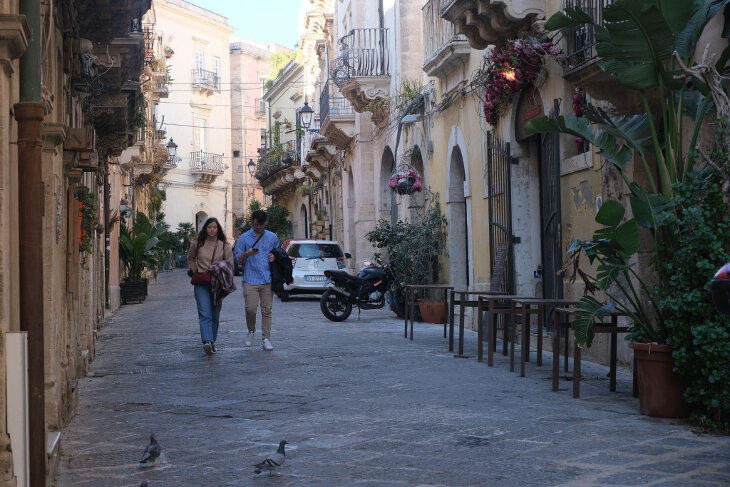 A street in Syracuse.
A street in Syracuse.
Enrica Bruno is a tour guide with Sicilian Food Tours based in Palermo. She explains that the fact that Palermo Jews named their neighborhood after the Islamic house of worship shows how well the two communities got along in pre-Inquisition Sicily.
Later she takes me through the famous Palermo street market where we find some mahi mahi. This, she explains, is called “capone” in the Sicilian dialect. It used to be the main ingredient for caponata, prepared by the wives of fishermen.
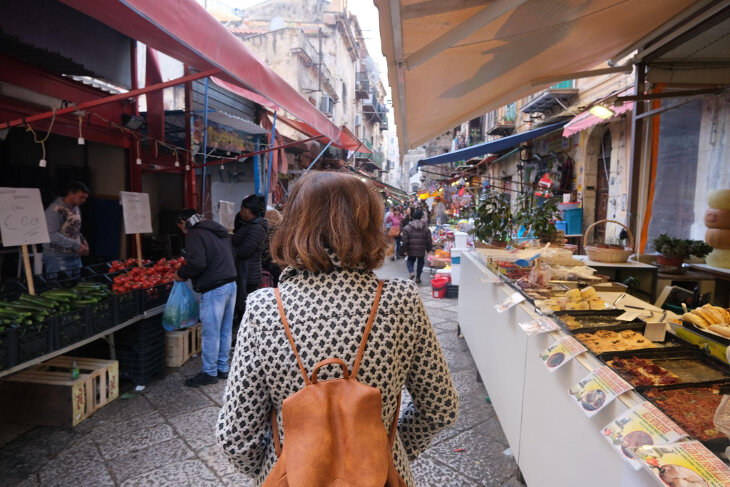 Palermo street market
Palermo street market
“They didn’t know how long [their husbands] would stay on the boat,” she explained. “The wives used to prepare this dish with fish, olives, celery, onions, a little bit of tomato, and a sweet and sour combination of vinegar and sugar in order to preserve the dish for a couple of days at least.”
Bruno says they don’t know exactly when the dish completed its evolution to the one you’ll find on menus across the island today, but fish is no longer part of a typical caponata.
“Poor people couldn't afford the price of the capone fish,” she explained. “This fish was replaced with the eggplants.”
But there’s a Jewish history to the dish that likely predates these tales of fishermen and their wives. Gil Marks touched on this in his legendary tome, The Encyclopedia of Jewish Food, where he noted that the Jews of Sicily prepared a variety of cooked vegetable dishes for Shabbat. These dishes were served cold as a kind of salad during Shabbat lunch.
In Pellegrino Artusi's 1891 cookbook, "La scienza in cucina e l'arte di mangiar bene" (Science in the Kitchen and the Art of Eating Well), the author noted that eggplants and fennel were both known to be foods eaten only by Jews. In fact, Artusi wrote that eggplant was once considered "vile food of the Jews."
Now, it’s impossible to imagine Sicilian cuisine, let alone caponata, without eggplant.
Caponata variations
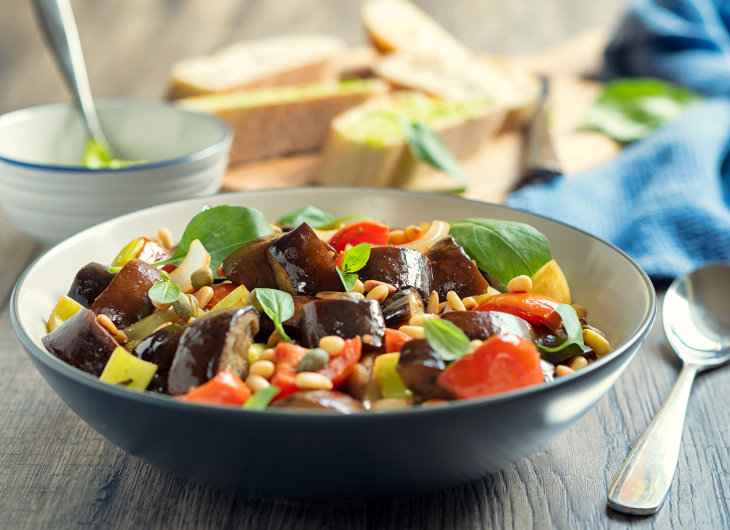
Variations of the dish are spread throughout Sicily. Like so many Italian dishes, you can find changes to the dish from home to home. But everyone seems to agree that it’s not caponata without eggplant. At aTipico in Palermo, a vegan spin on traditional Sicilian cuisine, Luca Giovanni Maria Buemi prepares his with olives. In fact, for him, it’s not caponata without olives.
In Syracuse, chef Eric Scuotto took me into his childhood home to show me how he makes the caponata he grew up with using just eggplants, bell pepper, carrots, celery, pine nuts, capers, sugar, and vinegar. That’s it. You can find caponata with more ingredients across the universe of food blogs and cookbooks.
“The important thing is that you cook the vegetables separately,” he says. The exceptions to this rule are the celery and carrots, which Scuotto says you can sauté together because they have a similar cook time. But the eggplants need a good 8-10 minutes whereas the bell peppers only need about 5 minutes.
“Usually you eat caponata the day after you prepare it,” he says. This is perhaps a legacy habit from Sicilian Jews who would prepare the dish ahead of time to eat it during Shabbat lunch.
Get my recipe inspired by chef Eric Scuotto’s for Italian Caponata here.





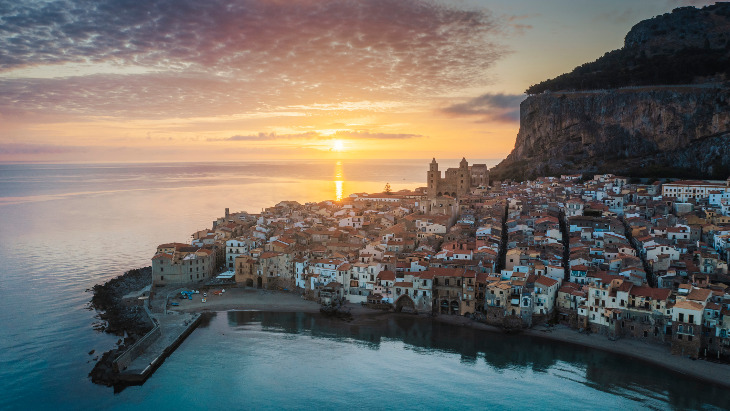


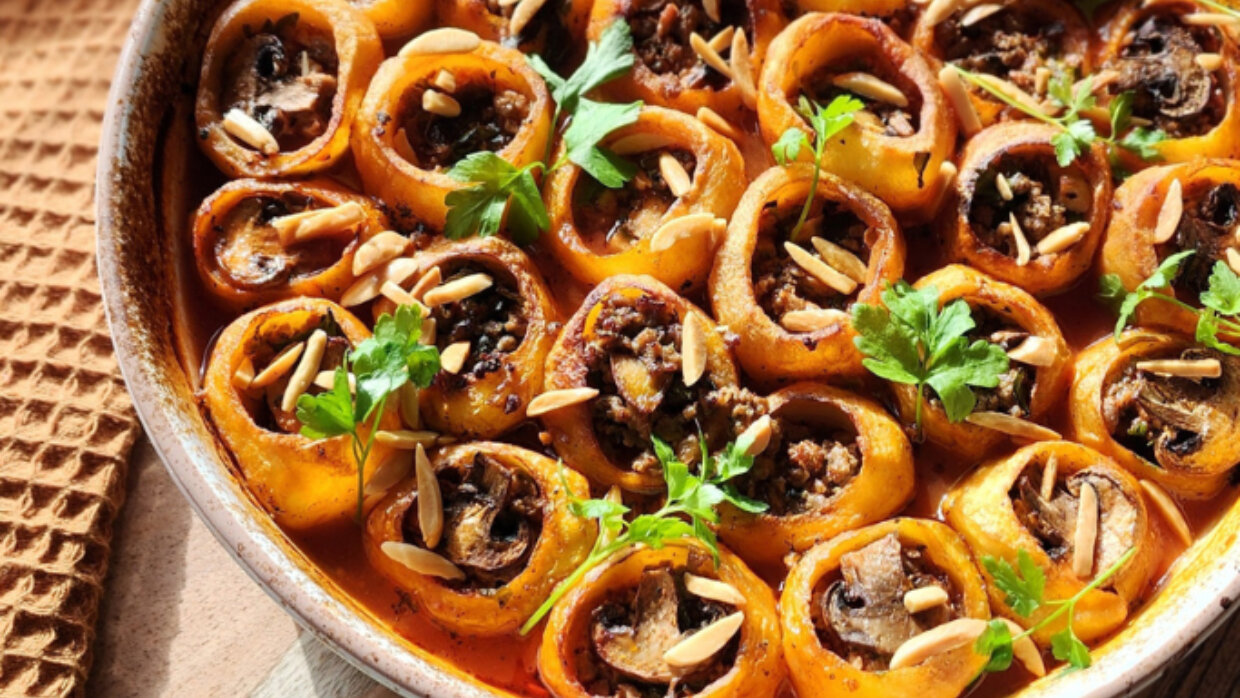
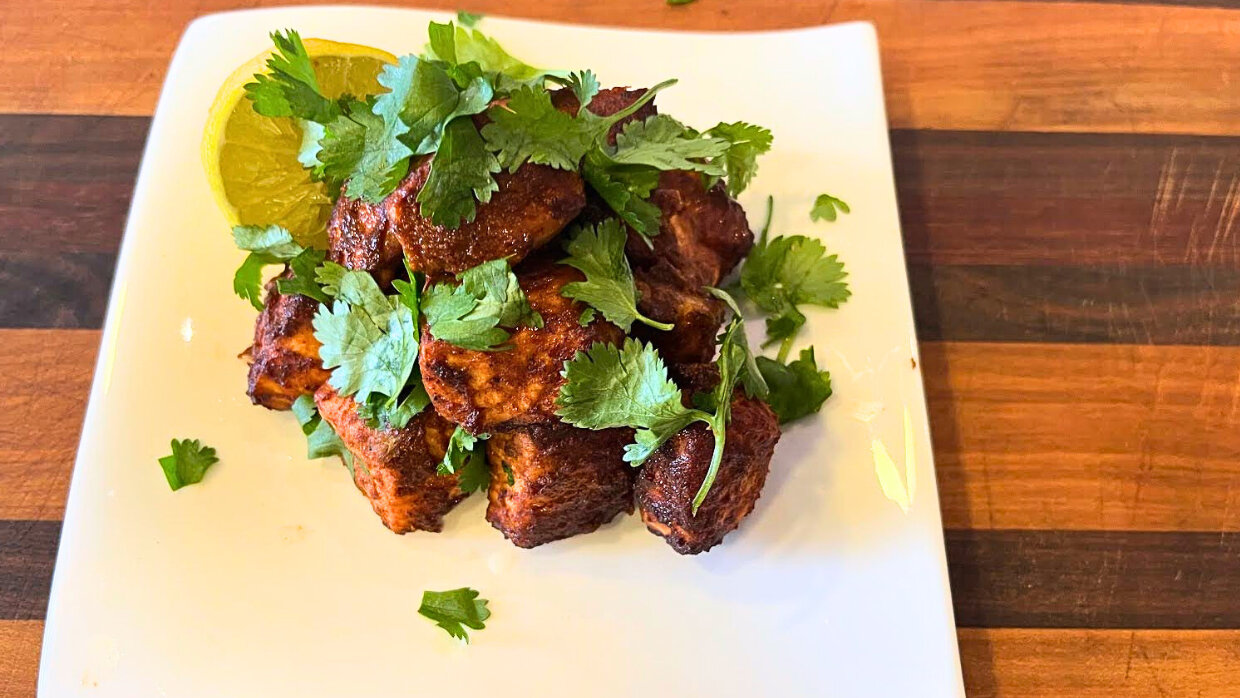
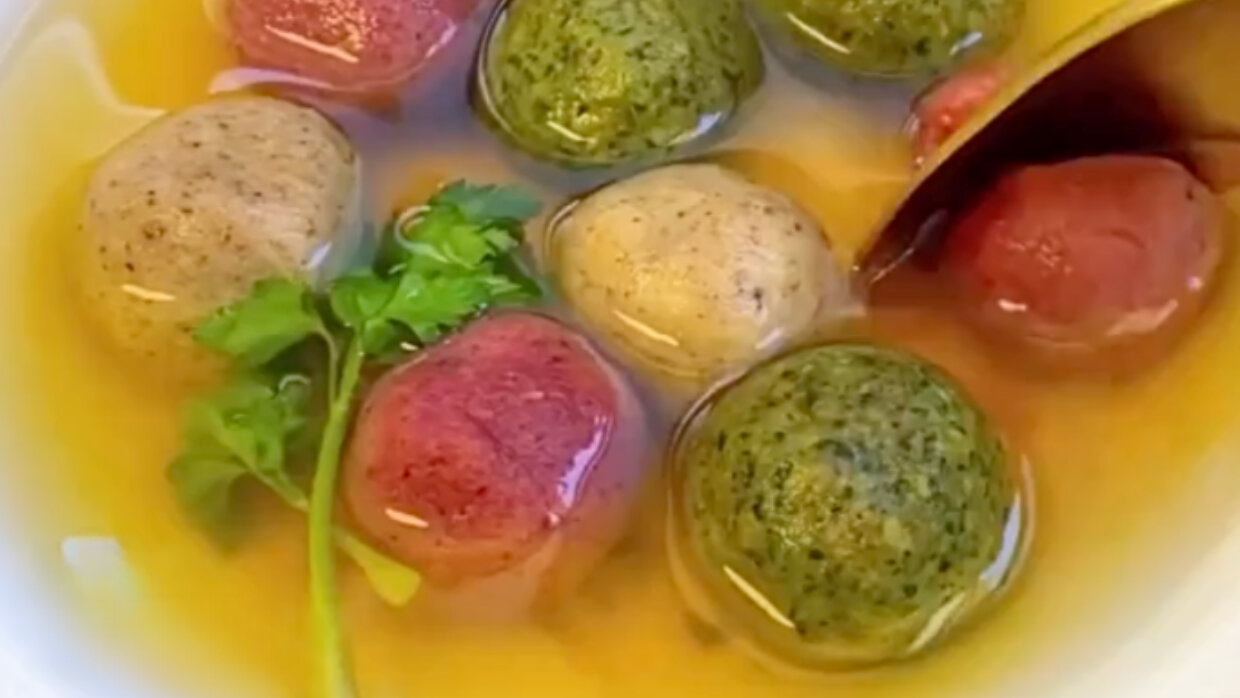


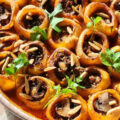




I am Italian jew, this is very interesting for me , to hear these comments.
I really have to make some kind of art print that features eggplant with the words "the vile food of the Jews" winding around it.
I hope that you are saying that
as a sarcastic pun..?
Thank you so much for this post, I am going to make this caponata for next Shabbat. Great story, too.
I appreciate the history along with the amazing explanation of the food prep as I'm always fascinated by "old world" recipes.Thankyou
Gorgeous food!